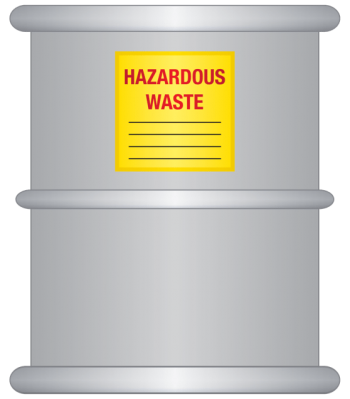Top 10 Hazardous Waste Violations You Should Know
Do you know the Top 10 Hazardous Waste Violations? If not, you should. Businesses can be quick to dismiss the importance of proper waste disposal, but human health and the environment depend on it. Violating RCRA regulations puts you at risk. Knowing what you can do to avoid violations can help keep you and your business safe.

Top 10 Violations:
- Improper Labeling: There are many ways for these violations to occur: improper information, lack of labels on tanks and containers, missing DOT placards, or wrong waste determination.
- Improper Determination: This is the failure to correctly identify hazardous wastes and their properties.
- Incorrect Disposal: The improper disposal, whether purposefully or mistakenly, into drainage systems, dumpsters, general trash, or sewer.
- Inadequate Hazardous Waste Manifest: The failure to track hazardous waste with the appropriate paperwork when shipped off site. Manifest records must be on file and available upon request.
- Improper Management of Expired Hazardous Waste: The improper tracking and disposal of expired chemicals. More common for laboratories, hospitals, and universities.
- Lack of Contingency Plan: Should an unplanned release happen, lack of a Contingency Plan can lead to human health and environmental hazards. Failure to develop and notify the proper authorities is a violation of hazardous waste laws.
- Inadequate Employee Training: Improper or lack of training in hazardous waste management can be extremely dangerous. No knowledge of safety, correct or precautionary procedures can create hazardous conditions for those involved.
- Open Containers: One of the most common violations on this list. Containers of hazardous waste must be closed and latched at all times, except when adding or removing waste.
- Improper Management of Mercury: Improper disposal of mercury waste and mercury-containing products is toxic and expensive to clean up.
- Infrequent Inspections: Weekly inspections of hazardous waste container storage areas are required.
So, how do you avoid hazardous waste violations like the ones listed above? Knowledge is key. Understanding the rules and regulations pertaining to hazardous waste and its management can help you implement the necessary procedures to work safely and maintain compliance.
Remember, we offer the training you need to stay in compliance
and avoid violations and fines.
Check them out now.


